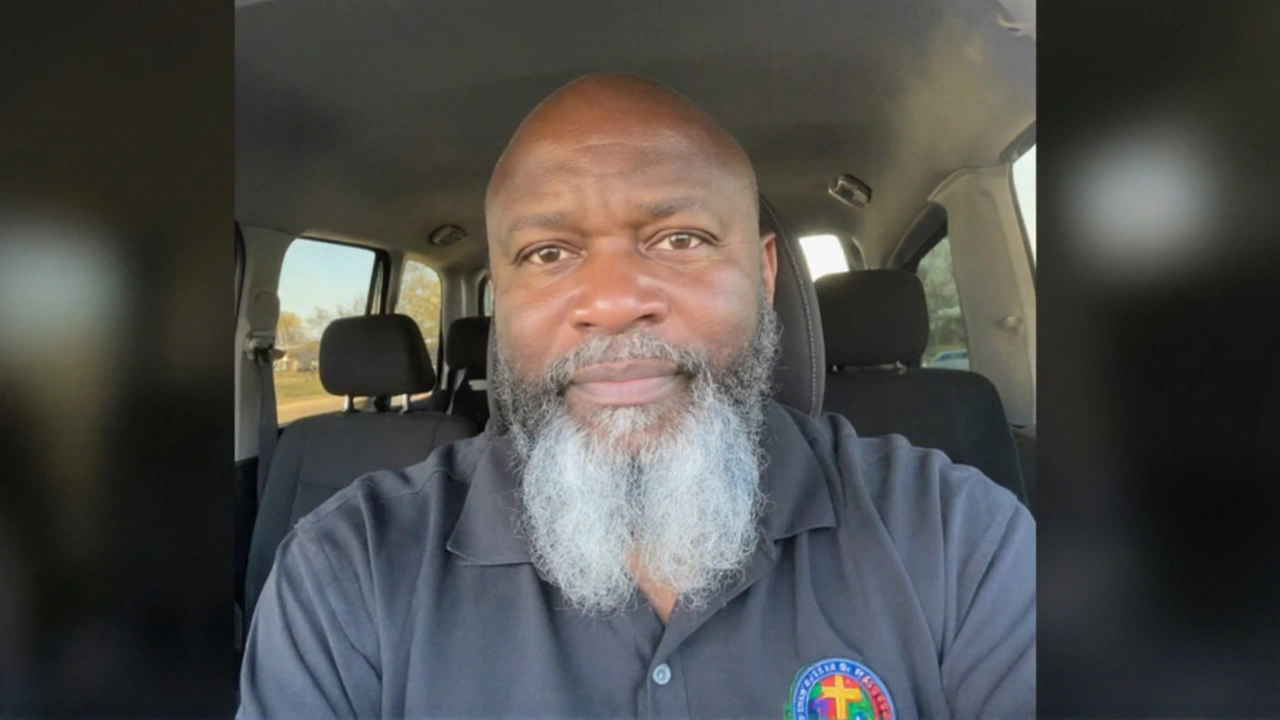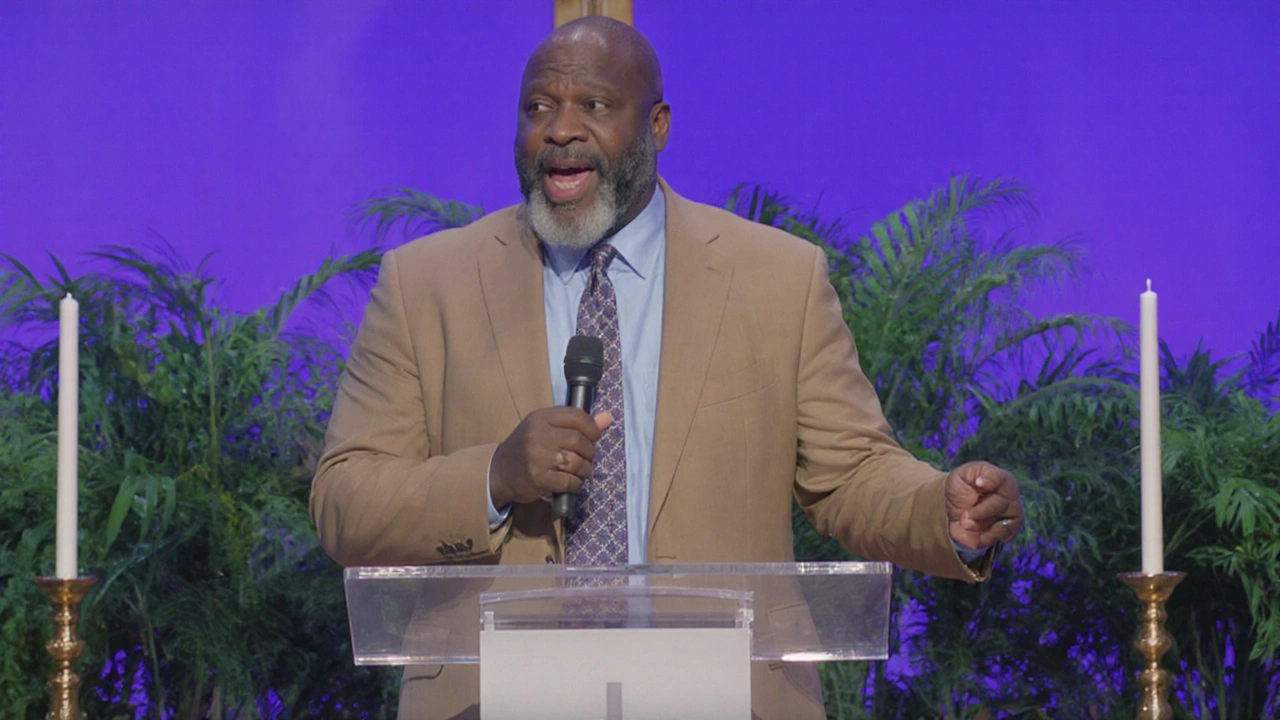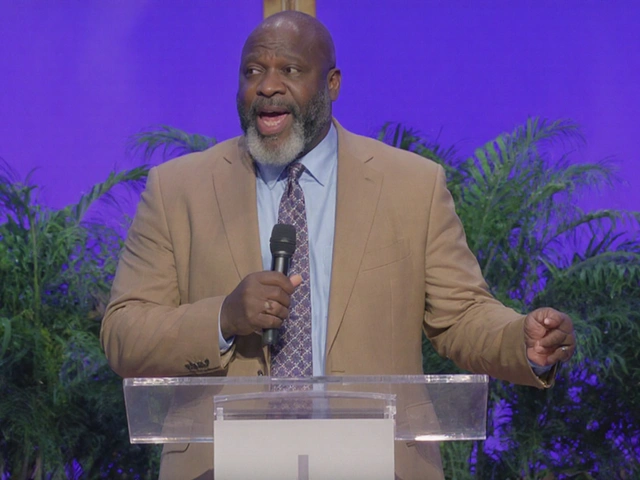On September 25, 2025, the gospel world learned that Voddie Baucham had died at the age of 56. The news broke through Founders Ministries’ social‑media post, which described him as a brother who had “entered the land of the living,” a phrase that already felt like a prayer. He left behind a wife, Bridget, their children, and grandchildren, as well as a legacy that stretched from college football fields to African lecture halls.
From Los Angeles Streets to Theological Halls
Baucham was born on March 11, 1969, in Los Angeles, a city far from the Bible‑studying campuses where he would later teach. He first made a name for himself on the gridiron, playing tight end at New Mexico State and later Rice University. After transferring to Houston Baptist University, he earned a BA and discovered a deeper calling during his college years, converting to Christianity and committing his life to the gospel.
Academic ambition didn’t end there. He earned a Master of Divinity from Southwestern Baptist Theological Seminary, followed by a Doctor of Ministry from Southeastern Baptist Theological Seminary. A stint of post‑graduate study at the University of Oxford added a global dimension to his theological perspective, a benefit he would later bring to African classrooms.

Ministry Milestones and Global Impact
In 1993, Baucham launched Voddie Baucham Ministries, a platform that combined preaching, teaching, and writing. He quickly became a regular voice at Passion Conferences in the late 1990s, reaching thousands of young believers with his unapologetic Reformed stance. By the early 2000s, he was pastoring Grace Family Baptist Church in Spring, Texas, a Southern Baptist congregation known for its growth and community outreach.
His heart for missions led him to Lusaka, Zambia, in 2015, where he served as Dean of Theology at African Christian University for nine years. Colleagues there credit him with reshaping the curriculum, emphasizing biblical fidelity while encouraging students to engage their cultural contexts. During this period, he also mentored countless pastors who now lead churches across Africa.
Returning to the United States in 2024, Baucham helped launch Founders Seminary in Cape Coral, Florida. Named after the historic “founding” principles of evangelical Christianity, the seminary appointed him as its first president. In that role, he oversaw faculty recruitment, curriculum design, and fundraising, aiming to train pastors who would “stand firm on biblical truth.”
Beyond the pulpit, Baucham authored several best‑selling books, including *Theology of the Family* and *Family Driven Faith*. His writings tackled hot‑button issues—gender roles, cultural engagement, and the authority of Scripture—sparking both admiration and debate within evangelical circles.
Health battles tested his resolve. In early 2021, he suffered full‑blown heart failure, prompting emergency surgery. Weeks later, surgeons performed a quadruple bypass after discovering additional blockages. Despite the grueling recovery, he continued speaking at conferences, writing articles, and teaching online lectures, showing a tenacity that many fans described as “steel‑spined faith.”
In March 2022, Baucham disclosed that he had been nominated for the presidency of the Southern Baptist Convention, though he was uncertain about eligibility while serving abroad. The nomination underscored his influence; few pastors of his generation have been considered for such a high office.
His sudden death has sent shockwaves through churches, seminaries, and social media. Former students posted tributes describing him as “a mentor who never stopped praying for his flock,” while colleagues at Founders Ministries quoted Psalm 116:15, noting that “the death of the saint is precious in the sight of the Lord.”
Friends and family ask for prayers for Bridget, their children, and grandchildren—a request that mirrors Baucham’s lifelong emphasis on family as the church’s foundational unit. As the Christian community gathers to remember his life, the conversations he sparked about doctrine, culture, and discipleship will likely continue to shape evangelical thought for years to come.


Chirag Kamra
September 29, 2025 AT 01:01bro what a ride 🤯 from football fields to preaching to Africans like a modern-day Paul... i still remember his sermon on family-driven faith when i was 19. changed my whole outlook. godspeed brother.
Ramesh Velusamy
September 29, 2025 AT 19:24man i cried when i heard this. he was the reason i went back to seminary after dropping out. his voice on youtube kept me grounded when everything else felt fake. rest in power, voddie.
Sushil Kallur
October 1, 2025 AT 09:49i met him once in lusaka. he asked me about my village’s church and listened like he had all day. no ego. no rush. just truth wrapped in kindness. the world needs more like him.
Chandni Solanki
October 1, 2025 AT 21:44i still have his book on my nightstand 🙏 he made me feel like my faith wasn’t too small even when i doubted everything. god bless bridget and the kids. love you voddie 💙
Nitin Garg
October 3, 2025 AT 10:28classic reformed guy. always right. always loud. always needed a nap after preaching. he was the reason half the church turned into a doctrinal war zone but hey at least they knew what they believed.
Seema Lahiri
October 4, 2025 AT 05:54i think about how he kept teaching even after the heart attack like nothing was wrong and i wonder if we all pretend we’re fine when we’re not and maybe that’s the real faith not the sermons but the showing up
Jay Patel
October 5, 2025 AT 06:48so he died doing what he loved right but what if the real tragedy is that he never got to see the church he built actually love people instead of just arguing about predestination
fathimah az
October 6, 2025 AT 05:37his hermeneutical framework was deeply rooted in covenantal theology but what impressed me most was his ability to contextualize it within african ecclesiology without diluting soteriological clarity. truly a rare synthesis.
Sohini Baliga
October 7, 2025 AT 14:03His dedication to biblical fidelity and family discipleship has left an indelible mark on countless lives. May his legacy continue to inspire steadfastness in truth and grace in conduct.
Senthil Kumar
October 9, 2025 AT 08:48I extend my deepest condolences to Mrs. Baucham and the entire family. His scholarly contributions and pastoral heart have profoundly influenced the global church. May God grant you peace.
Anu Baraya
October 9, 2025 AT 23:27he taught me that theology isn’t about winning arguments it’s about loving people enough to tell them the truth even when it hurts and that’s the kind of legacy that outlives the body
Divyangana Singh
October 11, 2025 AT 18:01sometimes i think the most radical thing a man can do is love his wife well raise his kids with patience and preach the gospel without apology... voddie did all three and made it look like grace not grit
Harsh Vardhan pandey
October 12, 2025 AT 06:34he was loud but at least he was consistent. unlike the rest of us who change our minds with the seasons. i guess that’s why people still talk about him.
Shatakshi Pathak
October 12, 2025 AT 21:27did anyone else notice he never talked about his own kids in sermons? weird right? like a pastor who preaches family but never lets you see his family?
kriti trivedi
October 14, 2025 AT 11:43he built a seminary to fight culture but forgot culture was already inside the walls. irony much? still... he made people think. and that’s more than most pastors do.
shiv raj
October 16, 2025 AT 03:01i never met him but his voice on the podcast kept me from quitting church. he made truth feel like home. rest easy brother. we got this now.
vaibhav tomar
October 16, 2025 AT 11:08i think the real question is not how he died but how he lived with so much pain and still showed up every day like nothing happened like the gospel was real and not just a sermon
suresh sankati
October 18, 2025 AT 01:29he was the guy who made you feel dumb for not reading calvin but then gave you a hug and a coffee so you didn’t hate him. that’s the magic.
Pooja Kri
October 19, 2025 AT 09:56his approach to biblical inerrancy aligned with the reformational paradigm yet he integrated african oral traditions into pedagogy without compromising textual integrity. a true bridge-builder.
Sanjeev Kumar
October 20, 2025 AT 18:08he didn’t just teach theology he embodied it. the way he carried his grief after the heart surgery... the way he still showed up for his students in zambia... that’s the gospel in motion. not just words. flesh and blood. i’ll miss him.